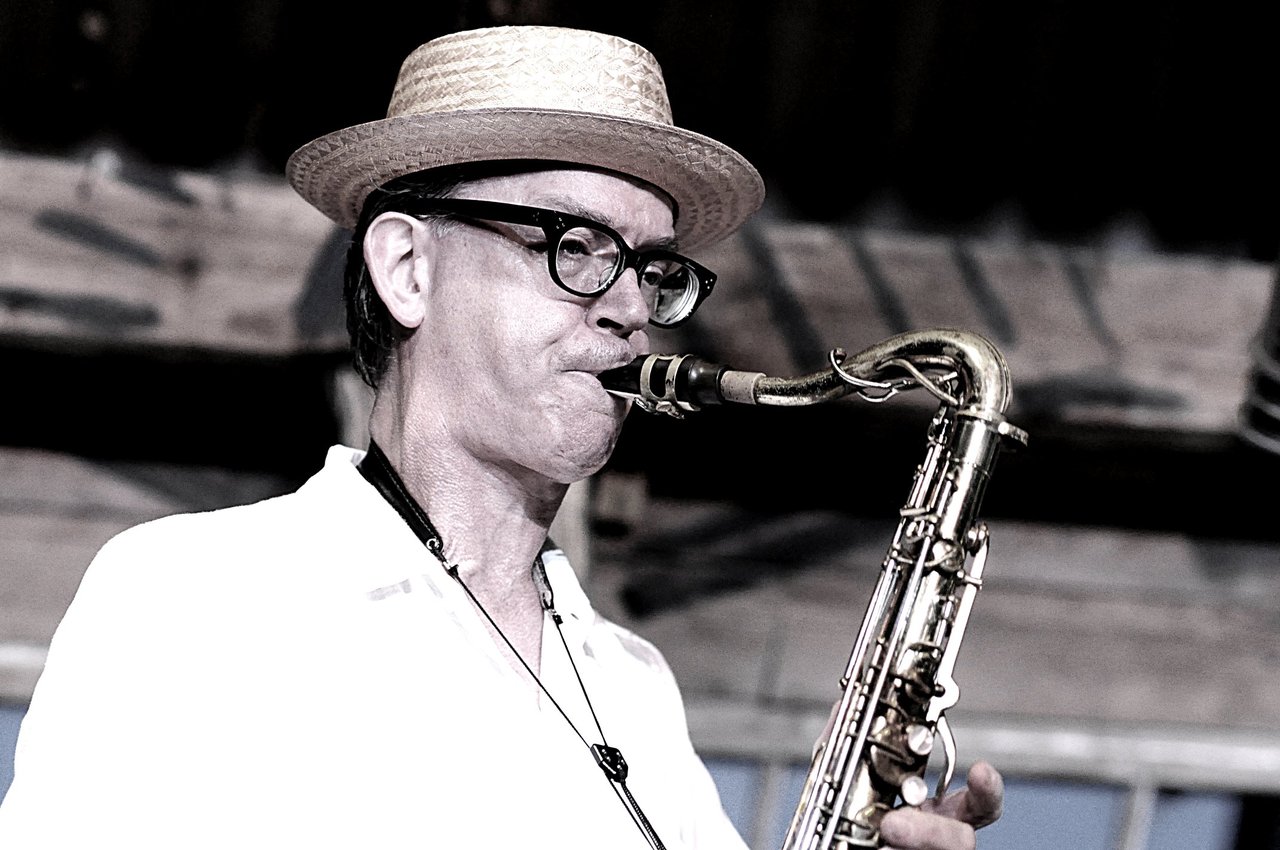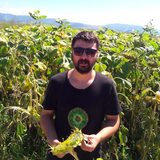AB: The first time I played here was with the trio I have, my own trio, with bass and drums. It has
Martin van Duynhoven on drums and
Wilbert de Joode on bass, and I think it was even my first concert outside Holland with the trio. And I had been playing in Molde, in Norway, the festival, and I would fly from Molde to Vienna. So I was really looking forward, we had been rehearsing the music and I was playing in Molde with the ICP Orchestra, with Han Bennink and Misha Mengelberg. So I was going to the airport very early in the morning and it was all mist, a fog, you couldn’t see anything. So all flights were cancelled and I couldn’t fly to Vienna. I phoned Hans Falb and I said `Hans, I’m very sorry but I cannot come, because all the flights are cancelled`. And Martin van Duynhoven and Wilbert de Joode were already here, so that was that.
IG: No, you played here in 1987, with ICP.
AB: Oh, with the ICP Orchestra, you’re right.
So what was your first impression when you came here? Did you know about the festival before?
IG: I was invited to play with ICP here and there was Leroy Jenkins, the violin player. I think he was in charge, because they mostly had a kind of one person bring a big group at that time, and since I was a swing player as well I was asked to join them. And John Carter, he was a beautiful player with whom Ab studied later.
AB: Yeah, 1989.
Ig: And for me it was a beautiful world; all this audience, just having so much attention for this strange, pretentious music. Back then there were a lot of American players, they had more budget to bring them.
I have the poster from 1987 at home. I remember it says ICP on it, and also Leroy Jenkins, Oliver Lake, John Carter.
IG: And also
Cecil Taylor was playing in the same year, I think?
AB: Cecil Taylor was playing with
John Carter.
IG: I was here, like this year, the day before the festival started, with no audience yet, and we were all sitting here and
Hans starts cooking at about 10, everybody is starving. It was beautiful, and I remember all the talks between
Misha Mengelberg and
Cecil Taylor about what you asked us, about improvising and notating this music, and I remember
Misha asked
Cecil `Why don’t you notate your music, because it’s such a beautiful thing you invent?`
AB: And what did
Cecil Taylor say?
IG: Yeah, like all the spiritual things you always miss. He was not very specific in his answers, but he said it has to happen on the spot, that’s what I remember.
AB: Well, it’s interesting, because I think
Cecil Taylor notates a lot of his music.
IG: I think he notates pitches and plans.
AB: I saw him play with big scores in front of him.
IG: But that’s a different world than having all the plans for session musicians who could reproduce your ideas. That’s a totally different world, much more into details.
What do you think, as musicians who played here... what do you think kept not only this festival alive but made it flourish and evolve each year?
AB: Young people, young musicians. That’s what we need.
IG: And budgets to make it happen. But the most important thing I think is that there’s one person like Hans Falb.
This is what I wanted to get to, because I think this kind of people are so special and are very very few.
IG: There are only a few, but the ones that are there, the ones that support - I think Hans with all the financial problems he had in the last five-six-seven years - I think Hans is supported very well by all the people around him who know their skills and his skills. And the device rolls now, and that’s why it still survives. Yeah, I think it’s very important that, I love to see that this impossible person, like Hans Falb, with his beautiful tastes for all the music that’s happening, and his brother and his nephews or whatever, they really have a knowledge about `what’s my role, what can I do`.
AB: And they love Hans and his ideas.
IG: I think they love him and they hate him, all at the same time.
A love-hate relationship.
IG: Yeah, because he is an
impossible person.
Even the fans contributed with some money five or six years ago, when they had the financial problems.
IG: Yeah, because I think we are all aware how important this kind of festival is. You experienced it yourself, to be here, in this side of the world and just listen to it. Sometimes you hate it, sometimes you like it, but you are here and listen, and everybody is very attentive.
--
Read also:
*
Konfrontationen 2015 - festival report
**
Interview with Hans Falb and Philipp Schmickl
***
Interview with Hamid Drake




